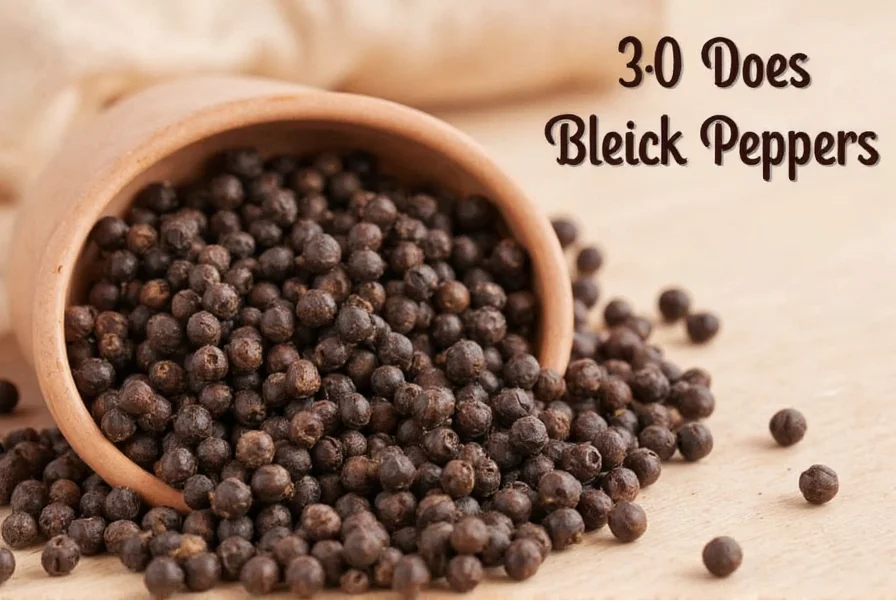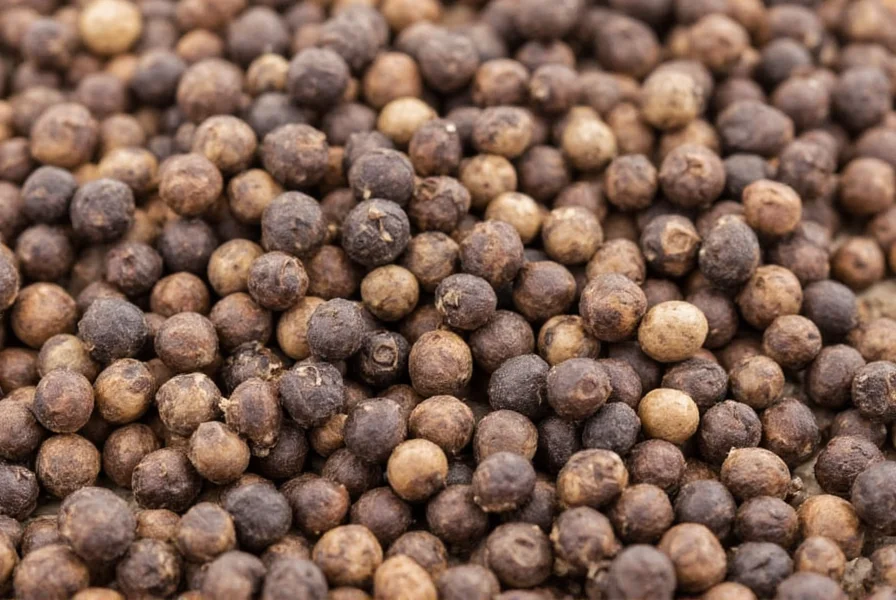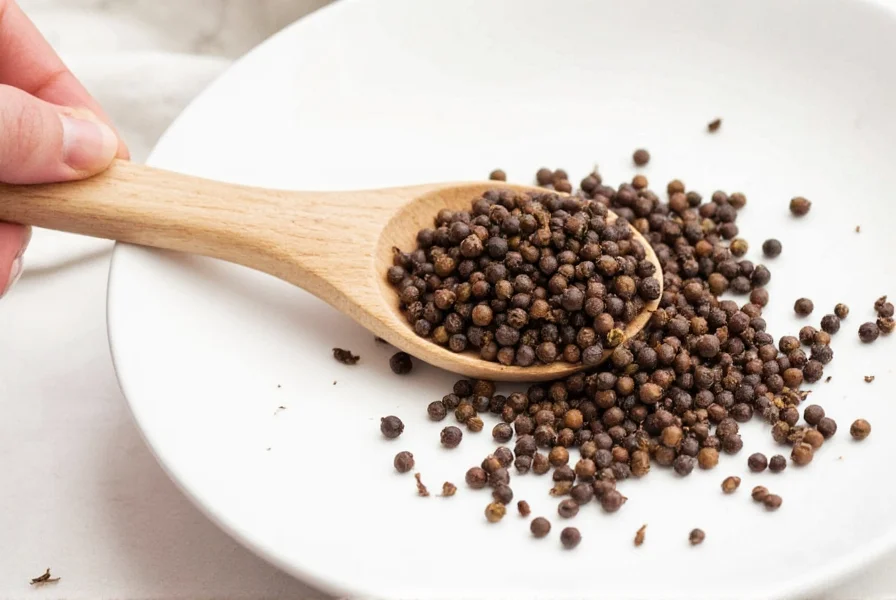Understanding the shelf life of black pepper is essential for maintaining the quality of your culinary creations. While black pepper doesn't spoil in the traditional sense that could make you sick, its aromatic compounds degrade, resulting in less flavorful seasoning over time. This comprehensive guide explores everything you need to know about black pepper longevity, storage best practices, and how to maximize its flavor potential.
Understanding Black Pepper Shelf Life
Unlike perishable foods, black pepper—whether in whole peppercorn or ground form—doesn't expire in a way that poses health risks. The primary concern with aged black pepper is flavor degradation rather than safety issues. Properly stored black pepper maintains its safety indefinitely, but its culinary value diminishes as time passes.
Whole peppercorns have a significantly longer shelf life than pre-ground pepper. When stored correctly, whole peppercorns can retain their optimal flavor for 3-4 years, while ground black pepper typically maintains peak quality for 1-2 years. This difference occurs because grinding exposes more surface area to air, accelerating the oxidation process that degrades flavor compounds.

Factors Affecting Black Pepper Longevity
Several environmental factors impact how quickly black pepper loses its potency:
| Factor | Impact on Shelf Life | Recommendation |
|---|---|---|
| Air exposure | Major degradation factor | Store in airtight containers |
| Light exposure | Moderate degradation | Store in dark containers or cabinets |
| Temperature | Accelerates degradation when high | Store in cool place (below 70°F/21°C) |
| Humidity | Causes clumping and mold risk | Maintain dry storage environment |
How to Tell If Black Pepper Has Lost Quality
While expired black pepper won't make you sick, it may disappoint your taste buds. Here's how to assess your black pepper's condition:
- Color check: Fresh black pepper has a deep, rich color. As it ages, it becomes noticeably lighter or grayish.
- Aroma test: Crush a small amount between your fingers. Fresh pepper has a strong, pungent scent. Stale pepper has little to no aroma.
- Taste evaluation: A small taste reveals whether your pepper still has the characteristic sharp, spicy flavor or has become bland.
- Texture observation: Ground pepper that has clumped together may have absorbed moisture, potentially affecting quality.
Optimal Storage Methods for Maximum Freshness
Proper storage significantly extends black pepper's flavor longevity. Follow these evidence-based storage recommendations:
For whole peppercorns, use an airtight glass or metal container stored in a cool, dark cabinet away from heat sources like your stove. Avoid plastic containers as they can absorb odors and may not provide an adequate moisture barrier. The ideal storage temperature is below 70°F (21°C) with low humidity.
Ground black pepper requires even more careful storage due to its increased surface area. Consider buying smaller quantities more frequently, or better yet, invest in a pepper mill and grind your own peppercorns as needed. This simple practice dramatically improves the flavor intensity of your seasoning.

Does Expired Black Pepper Pose Health Risks?
Consuming black pepper well past its prime quality window doesn't present significant health risks for most people. Unlike many other spices, black pepper's natural antimicrobial properties help prevent bacterial growth. However, if your black pepper shows signs of moisture, mold, or insect infestation, discard it immediately.
The primary consequence of using stale black pepper is diminished flavor in your dishes. You might find yourself using larger quantities to achieve the desired taste, which could potentially affect the balance of your recipes. For optimal culinary results, replace ground black pepper every 1-2 years and whole peppercorns every 3-4 years.
Maximizing Flavor in Your Seasoning Routine
To ensure you're getting the most flavor from your black pepper, consider these practical tips:
- Grind peppercorns immediately before use for maximum flavor release
- Store multiple small containers rather than one large one to minimize air exposure
- Keep your pepper away from salt, which can absorb moisture and transfer it to your pepper
- Consider freezing whole peppercorns for extremely long-term storage (up to 5 years)
- Label containers with purchase dates to track freshness
Understanding does black pepper expire concerns helps home cooks maintain their pantry's quality without unnecessary waste. By recognizing that black pepper shelf life relates primarily to flavor rather than safety, you can make informed decisions about when to replace your seasoning based on quality rather than arbitrary expiration dates.
Frequently Asked Questions
Can you get sick from using old black pepper?
No, properly stored black pepper doesn't become unsafe to consume over time. While its flavor diminishes, black pepper's natural antimicrobial properties prevent bacterial growth. The only time black pepper could pose health risks is if it shows visible mold, has absorbed moisture, or has been contaminated by pests.
How can you refresh old black pepper?
While you cannot fully restore stale black pepper to its original potency, toasting whole peppercorns in a dry skillet for 1-2 minutes can temporarily enhance their aroma. For ground pepper that has lost flavor, the most effective solution is replacement. Consider investing in a pepper mill to grind fresh pepper as needed for optimal flavor.
Does black pepper lose nutritional value over time?
Yes, like most spices, black pepper gradually loses its beneficial compounds over time. Piperine, the active compound in black pepper that enhances nutrient absorption, degrades with exposure to air, light, and heat. While expired black pepper still contains some nutritional value, freshly ground pepper provides significantly higher concentrations of these beneficial compounds.
Is there a difference in shelf life between organic and conventional black pepper?
No, the shelf life of black pepper depends primarily on storage conditions rather than whether it's organic or conventionally grown. Both types will maintain their safety indefinitely but experience similar rates of flavor degradation when exposed to the same environmental factors. The key to longevity is proper storage in an airtight container away from light, heat, and moisture.











 浙公网安备
33010002000092号
浙公网安备
33010002000092号 浙B2-20120091-4
浙B2-20120091-4